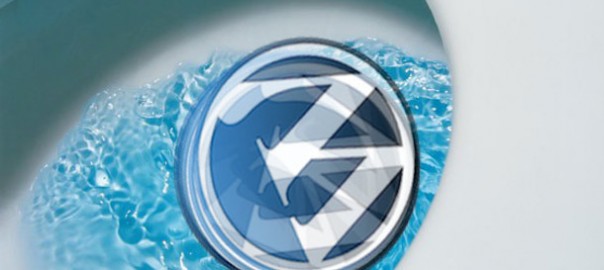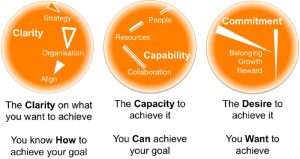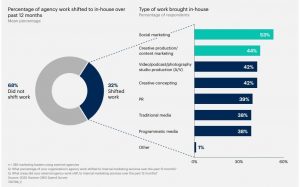
This post on how to ruin your WordPress Website was inspired by a client I worked with last week. His ecommerce site had been hacked and suspended by his host, and he wanted to clean it up.
Without making promises, I took a look at his WordPress dashboard, and what I found shocked me. He was operating on WordPress V. 3.5 and most of his whopping 33 plugins were outdated.
The quandary was that even with an upgrade, the plugins or theme still crashed his site. The theme was probably outdated and his memory was low.
Ultimately, it was so hard to identify the culprit, I referred him to a super geek, me being just a mild geek and all.
Now, he faces the option of paying big time to clean up the mess, or just rebuild. It’s heartbreaking.
Safe to say, this fellow did everything he could to ruin his site.
If you too would like to ruin your WordPress Website, here’s how it’s done.
Don’t upgrade WordPress
The WordPress core gets updated about twice per year at every major version, and sometime for minor versions. What a frickin’ hassle! Why can’t WordPress just stay the same forever and never require these annoying upgrades!
WordPress is upgraded to introduce new tools and improve the features it already provides. If WordPress had stayed the same as Version 1 from 2004, you would probably be using Drupal right now.
WordPress is also upgraded in order to close security holes that open up in the process. WordPress is simply trying to prevent the bad guys from breaking in to your site, not annoy you.
But if you don’t care if the bad guys break in and rape your database, don’t do the following.
- Backup your data on multiple drives
- Deactivate all plugins
- Go to Dashboard>Updates and press Update WordPress. (You can also upload WordPress manually.)
- Update plugins displayed on that page, and activate
- Check your pages to make sure all functions are working correctly
If you are behind by a version or two it should be safe to upgrade to the latest version. But if you’ve been trying hard to screw yourself by ignoring upgrades since version 3.5, it would be better to redeem yourself by upgrading incrementally on your server.
Here’s how that’s done, but if you’d prefer to ruin your wordPress website – never mind.
Don’t upgrade plugins
Hackers gonna’ hack, which is why plugins also need constant updating. Bright little numbers in the Plugins tab on your dashboard menu tell you how many are out of date. But if you want to send your site straight down the toilet, just ignore those numbers.
People who care about their sites visit their Installed Plugins page often. They update cautiously since plugin updates can sometimes pose unforeseen conflicts with the theme, or with other plugins.
Plugins can be updated automatically through the WordPress Dashboard, but it’s more secure to FTP them to the server. One is quick and easy, the other long and tedious.
Since plugins are updated in sync with new versions of WordPress, if you want to ruin your wordPress website by failing to upgrade WordPress, why bother upgrading plugins? After all, they only control the functionality of the most important parts of your site, which is why they were installed in the first place.
While you’re screwing up your site, install a plugin for every little thing on your site, the more the worse. Pay no heed to how the plugins interact with each other and your theme. Let them run amok!
Bad is the new good!
Never backup
Your host keeps backups of your site, so why should you? What does it matter if you’ve made a million changes since their last backup. If your site goes kaplooey, you can just do all that work again!
People who care about their sites backup incessantly, especially if the site contains beaucoup data, as with an ecommerce site.
They will backup using plugins, or by exporting XML content files to their hard drive, DropBox, or cloud servers on a weekly, daily or hourly basis. These backup maniacs think that without copies of their site, they might loose everything in case of a hacking or act of god.
But if you want to ruin your wordPress website in the event of a calamity, screw it. Don’t bother backing up. Backups are for wussies.
Ignore Google Analytics
Who does Google think they are? God? They already have too much control over the Internet. Why play along with their game?
So many people waste their time staring at stats on Google Analytics. What do they think they’re going to learn?
More about their audience using Advanced Segments, App-Specific Metrics and Dimensions, Audience Data & Reporting, Custom Dimensions, and Filters?
How to track their customers path through Browser OS, Flow Visualization, Map Overlay, Mobile Traffic, Social Reports, Traffic Sources and Universal Analytics?
Or are they obsessed with what’s happening in real time like, Event Tracking, Flow Visualization, In-Page Analytics, Real-Time Reporting, or Site Search?
Gag! That stuff is so geeky. If you are determined to ruin your wordPress website, how can you spare the time to see how things working as shown by the great Internet god. Who needs facts anyway?
Ignore Webmaster Tools
Anyone bent on self-destruction certainly doesn’t need help with anything. And definitely not help from those smartypants at Google. What does Webmaster Tools offer that you can’t find in WordPress for Dummies anyway?
Isn’t it enough that you constantly post stuff without having to log into Webmaster Tools to:
- Make sure that Google can access your content
- Submit new content for crawling and remove content you don’t want shown in search results
- Create and monitor content that delivers visually engaging search results
- Maintain your site with minimal disruption to search performance
- Monitor and resolve malware or spam issues so your site stays clean
If you are hoping to ruin your wordPress website, why bother knowing:
- Which queries caused your site to appear in search results?
- Which queries result in more traffic to your site than others?
- Which product prices, company contact info, or events are highlighted in rich search results?
- What sites are linking to your website?
- If your mobile site is performing well for visitors searching on mobile?
Details, details! How can one be so bothered with details?
Don’t check site speed
If your site loads fast enough for you, who cares what other users are experiencing. If readers can’t wait 8 seconds for your blog to come up, screw them. Patience is a virtue. Too many people are in a rush these days. Everyone wants everything now, now, now.
Life is too short to worry about page speed by testing your URL on Google Pagespeed, Pingdom or Yslow. There is too much information there to process in your ADD brain.
And if you do test your site and get suggestions on how to speed up your site, you’ll just feel obligated to make those fixes. Or, you’ll feel guilty when you don’t.
So why bother checking your site speed when you can rest assured that everything will load in its own sweet time.
To truly ruin your wordPress website, make your audience wait for your pages to load.
Don’t Change Passwords
Again, hackers gonna’ hack. If they’re going to break in, why not leave the door open instead of making them break a window.
Since you love using “Admin,” or the name of your site, or the tagline of your site as your username, why worry about the password?
What’s wrong with using “password” or “12345678” or “letmein” as your password? Those are so easy to remember.
The really uptight, paranoid people use obscure words as usernames and even more obscure password. Some use a password generator to spit out gibberish no one can possibly remember.
Others use mantras as passwords to describe at length how they’re feeling that day.
Not only that, they change their passwords regularly. And not just the WordPress password, but their hosting account password and their ftp password too!
How can anyone remember all those passwords if they get changed all the time. It’s not like you can keep a record of them, because what if a hacker breaks into your site and steals your list of passwords!
Ruin your WordPress website the easy way
By far, the best way to ruin your website is to do nothing. Check nothing, monitor nothing. Pretend the site was launched (April 03, 2015) and will last forever. Imagine it brings in all the traffic you need. Let it run on overdrive.
Now, I’ll take my tongue out of my cheek and ask you, dear reader: what do you think is the easiest way to send your site down the toilet?
(227)
Report Post







